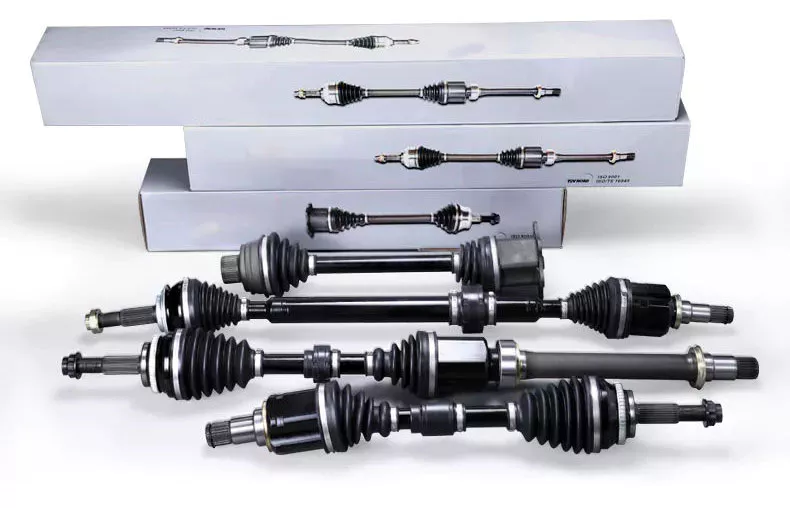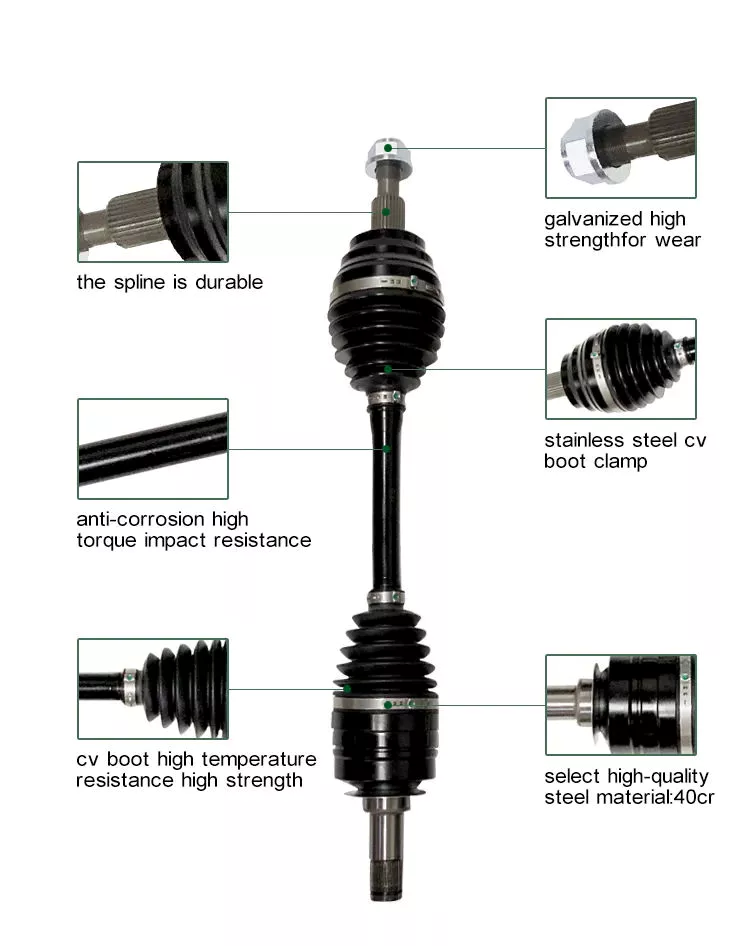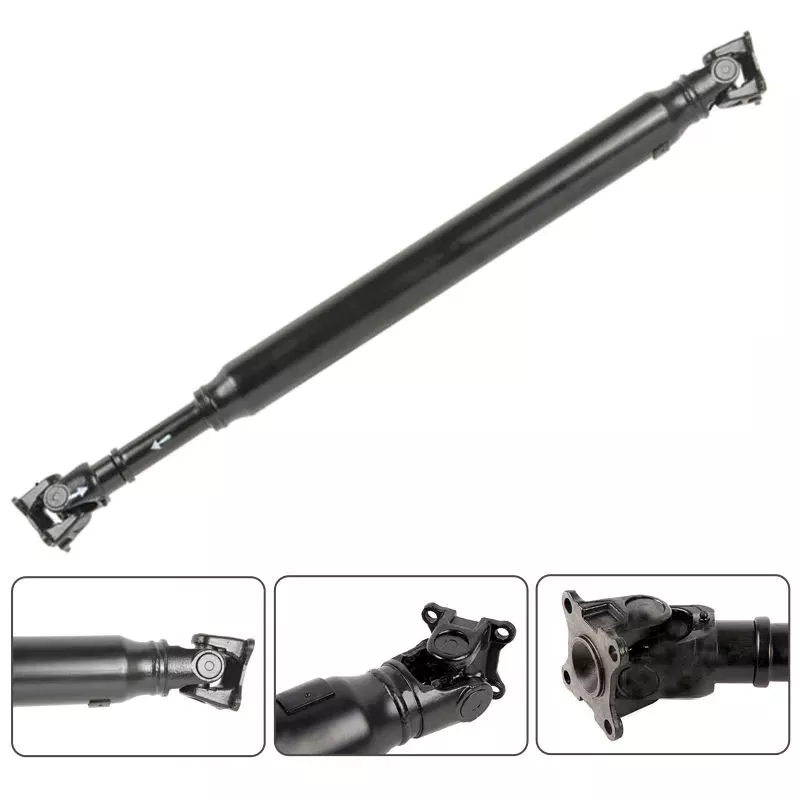Product Description
40*68*14mm AR81208 High Limiting Speed Needle Roller Thrust Bearing Used In Automobile Drive Trains
Application
Machine Tools Cars and Light Trucks
Trucks, Trailers and Buses Two and Three Wheelers
Needle roller thrust bearings are fitted with a form-stable cage to reliably retain and CZPT a large number of needle rollers.
Needle roller thrust bearings provide a high degree of stiffness within a minimum axial space.
In applications where the faces of adjacent machine components can serve as raceways, needle roller thrust bearings take up
no more space than a conventional thrust washer.
Needle Roller Thrust Bearings with Washers Specification
| Product Name | Needle Roller Thrust Bearings with Washers |
| Shaft Diameter | Available for 10 ≤ d ≤ 50 mm |
| Material | Bearing Steel (GCr15) |
| Suitable Washers | LS Universal Washer, AS Thin Universal Washer, WS Shaft Washer |
| Cage | Steel |
| Features | Accommodate heavy axial loads and CZPT loads |
| Certification | ISO 9001:2008 |
| Packing | 1.Neutral Packing Bearing 2.Industrial Packing 3.Commercial Packing Bearing 4.Customize |
| Delivery Time | 30 – 45 Days After The Order is Confirmed |
| Shippment | 1.By Sea 2.By Air 3.By Express |
| Website | http://hlimachinery |
| Bearing No. | Boundary Dimensions (mm) | Basic Load Rating (KN) |
Limited Speed |
Mass | |||||||
| d | D | B | Eb | Ea | C | Co | rpm | kg | |||
| AR4.5 10 22 | 10 | 22.0 | 4.50 | 12.2 | 18.5 | 6.56 | 14.32 | 12400 | 0.007 | ||
| AR5 12 26 | 12 | 26.0 | 5.00 | 14.8 | 22.9 | 10.16 | 23.60 | 10400 | 0.011 | ||
| AR5 15 28 | 15 | 28.0 | 5.00 | 16.8 | 24.9 | 11.20 | 27.20 | 9200 | 0.011 | ||
| AR5 17 30 | 17 | 30.0 | 5.00 | 18.8 | 26.9 | 12.00 | 31.20 | 8400 | 0.013 | ||
| AR7 20 35 | 20 | 35.0 | 7.00 | 22.0 | 31.5 | 17.60 | 43.20 | 7200 | 0.571 | ||
| AR7 25 42 | 25 | 42.0 | 7.00 | 27.7 | 37.3 | 20.40 | 56.00 | 6000 | 0.031 | ||
| AR7 25 52 | 25 | 52.0 | 7.00 | 29.0 | 47.0 | 26.00 | 97.60 | 5200 | 0.070 | ||
| AR7 30 47 | 30 | 47.0 | 7.00 | 32.7 | 42.3 | 21.20 | 61.60 | 5200 | 0.036 | ||
| AR81206 | 30 | 52.0 | 11.75 | 32.8 | 47.0 | 38.40 | 93.60 | 5040 | 0.085 | ||
| AR9 30 60 | 30 | 60.0 | 9.00 | 33.5 | 53.5 | 36.80 | 129.60 | 4480 | 0.113 | ||
| AR8 35 53.4 | 35 | 53.4 | 8.00 | 37.8 | 47.8 | 27.04 | 75.20 | 4400 | 0.052 | ||
| AR81207 | 35 | 62.0 | 12.75 | 38.6 | 54.8 | 52.80 | 132.00 | 4240 | 0.132 | ||
| AR9 35 68 | 35 | 68.0 | 9.00 | 39.0 | 60.6 | 40.80 | 155.20 | 3920 | 0.144 | ||
| AR9 40 60.4 | 40 | 60.4 | 9.00 | 42.8 | 54.8 | 36.80 | 103.20 | 4000 | 0.070 | ||
| AR81208 | 40 | 68.0 | 14.00 | 43.6 | 61.8 | 65.60 | 167.20 | 3840 | 0.169 | ||
| AR | 40 | 78.0 | 11.00 | 44.0 | 70.0 | 56.80 | 212.00 | 3360 | 0.225 | ||
| AR9 45 65.4 | 45 | 65.4 | 9.00 | 47.8 | 59.8 | 39.20 | 114.40 | 3600 | 0.077 | ||
| AR81209 | 45 | 73.0 | 14.50 | 48.6 | 66.8 | 68.00 | 180.00 | 3440 | 0.197 | ||
| AR | 45 | 85.0 | 14.00 | 49.0 | 77.0 | 65.60 | 272.00 | 3040 | 0.350 | ||
| AR9 50 70.4 | 50 | 70.4 | 9.00 | 52.8 | 64.8 | 40.80 | 125.60 | 3200 | 0.082 | ||
| AR81210 | 50 | 78.0 | 15.50 | 53.6 | 71.8 | 74.40 | 204.00 | 3200 | 0.234 | ||
| AR | 50 | 95.0 | 14.00 | 54.0 | 86.0 | 86.40 | 344.00 | 2720 | 0.448 | ||
| AR.4 | 55 | 78.4 | 10.00 | 58.5 | 72.5 | 48.80 | 162.40 | 3040 | 0.125 | ||
| AR81211 | 55 | 90.0 | 18.00 | 59.8 | 82.0 | 99.20 | 284.00 | 2880 | 0.381 | ||
| AR | 55 | 105.0 | 14.00 | 60.2 | 96.2 | 100.00 | 424.00 | 2480 | 0.537 | ||
About Us
HENGLI Machinery Company is a well-established Chinese bearing supplier. We design, manufacture and wholesale bearings.
Our specialized manufacturer of Spherical Roller Bearing & Cylindrical Roller Bearing, XIHU (WEST LAKE) DIS. Rolling Bearing Co., Ltd was
established in 1970 and is accredited by the Chinese Ministry of Machine Building.
We invested in 2 additional specialized bearing factories, which allow us to provide our clients with top of the line products such as
Needle Roller Bearings, Cam Follower Bearings, Thrust Bearings, Spherical Plain Bearings, Rod Ends Bearings, Ball Joint
Bearings, Tapered Roller Bearings, Wheel Hub Bearings and Non-Standard Bearings.
FAQ
Q1 – What is our advantages?
A – Manufacturer – Do it only with the Best;
-Your Choice make different.
Q2 – Our Products
A – Spherical Roller Bearing, Cylindrical Roller Bearing, Needle Roller Bearing, Cam Followers, Thrust Bearing
– Spherical Plain Bearing, Rod End, Ball Joint, Wheel Hub, Tapered Roller Bearing
Q3 – Process of our production
A – Heat Treatment – Grinding – Parts Inspection – Assembly – Final Inspection – Packing
Q4 – How to customize bearing(non-standard) from your company?
A -We offer OEM,Customized(Non-standard) service and you need to provide drawing and detailed Technical Data.
Q5 – What should I care before installation?
A – Normally, the preservative with which new bearings are coated before leaving the factory does not need to be
removed; it is only necessary to wipe off the outside cylindrical surface and bore, if the grease is not compatible
with the preservative, it is necessary to wash and carefully dry the bearing.
-Bearings should be installed in a dry, dust-free room away from metal working or other machines producing
swarf and dust.
Q6 – How to stock and maintenance my bearings right?
A – Do not store bearings directly on concrete floors, where water can condense and collect on the bearing;
-Store the bearings on a pallet or shelf, in an area where the bearings will not be subjected to high humidity
or sudden and severe temperature changes that may result in condensation forming;
-Always put oiled paper or, if not available, plastic sheets between rollers and cup races of tapered roller bearings.
How to Replace the Drive Shaft
Several different functions in a vehicle are critical to its functioning, but the driveshaft is probably the part that needs to be understood the most. A damaged or damaged driveshaft can damage many other auto parts. This article will explain how this component works and some of the signs that it may need repair. This article is for the average person who wants to fix their car on their own but may not be familiar with mechanical repairs or even driveshaft mechanics. You can click the link below for more information.
Repair damaged driveshafts
If you own a car, you should know that the driveshaft is an integral part of the vehicle’s driveline. They ensure efficient transmission of power from the engine to the wheels and drive. However, if your driveshaft is damaged or cracked, your vehicle will not function properly. To keep your car safe and running at peak efficiency, you should have it repaired as soon as possible. Here are some simple steps to replace the drive shaft.
First, diagnose the cause of the drive shaft damage. If your car is making unusual noises, the driveshaft may be damaged. This is because worn bushings and bearings support the drive shaft. Therefore, the rotation of the drive shaft is affected. The noise will be squeaks, dings or rattles. Once the problem has been diagnosed, it is time to repair the damaged drive shaft.
Professionals can repair your driveshaft at relatively low cost. Costs vary depending on the type of drive shaft and its condition. Axle repairs can range from $300 to $1,000. Labor is usually only around $200. A simple repair can cost between $150 and $1700. You’ll save hundreds of dollars if you’re able to fix the problem yourself. You may need to spend a few more hours educating yourself about the problem before handing it over to a professional for proper diagnosis and repair.
The cost of repairing a damaged driveshaft varies by model and manufacturer. It can cost as much as $2,000 depending on parts and labor. While labor costs can vary, parts and labor are typically around $70. On average, a damaged driveshaft repair costs between $400 and $600. However, these parts can be more expensive than that. If you don’t want to spend money on unnecessarily expensive repairs, you may need to pay a little more.
Learn how drive shafts work
While a car engine may be 1 of the most complex components in your vehicle, the driveshaft has an equally important job. The driveshaft transmits the power of the engine to the wheels, turning the wheels and making the vehicle move. Driveshaft torque refers to the force associated with rotational motion. Drive shafts must be able to withstand extreme conditions or they may break. Driveshafts are not designed to bend, so understanding how they work is critical to the proper functioning of the vehicle.
The drive shaft includes many components. The CV connector is 1 of them. This is the last stop before the wheels spin. CV joints are also known as “doughnut” joints. The CV joint helps balance the load on the driveshaft, the final stop between the engine and the final drive assembly. Finally, the axle is a single rotating shaft that transmits power from the final drive assembly to the wheels.
Different types of drive shafts have different numbers of joints. They transmit torque from the engine to the wheels and must accommodate differences in length and angle. The drive shaft of a front-wheel drive vehicle usually includes a connecting shaft, an inner constant velocity joint and an outer fixed joint. They also have anti-lock system rings and torsional dampers to help them run smoothly. This guide will help you understand the basics of driveshafts and keep your car in good shape.
The CV joint is the heart of the driveshaft, it enables the wheels of the car to move at a constant speed. The connector also helps transmit power efficiently. You can learn more about CV joint driveshafts by looking at the top 3 driveshaft questions
The U-joint on the intermediate shaft may be worn or damaged. Small deviations in these joints can cause slight vibrations and wobble. Over time, these vibrations can wear out drivetrain components, including U-joints and differential seals. Additional wear on the center support bearing is also expected. If your driveshaft is leaking oil, the next step is to check your transmission.
The drive shaft is an important part of the car. They transmit power from the engine to the transmission. They also connect the axles and CV joints. When these components are in good condition, they transmit power to the wheels. If you find them loose or stuck, it can cause the vehicle to bounce. To ensure proper torque transfer, your car needs to stay on the road. While rough roads are normal, bumps and bumps are common.
Common signs of damaged driveshafts
If your vehicle vibrates heavily underneath, you may be dealing with a faulty propshaft. This issue limits your overall control of the vehicle and cannot be ignored. If you hear this noise frequently, the problem may be the cause and should be diagnosed as soon as possible. Here are some common symptoms of a damaged driveshaft. If you experience this noise while driving, you should have your vehicle inspected by a mechanic.
A clanging sound can also be 1 of the signs of a damaged driveshaft. A ding may be a sign of a faulty U-joint or center bearing. This can also be a symptom of worn center bearings. To keep your vehicle safe and functioning properly, it is best to have your driveshaft inspected by a certified mechanic. This can prevent serious damage to your car.
A worn drive shaft can cause difficulty turning, which can be a major safety issue. Fortunately, there are many ways to tell if your driveshaft needs service. The first thing you can do is check the u-joint itself. If it moves too much or too little in any direction, it probably means your driveshaft is faulty. Also, rust on the bearing cap seals may indicate a faulty drive shaft.
The next time your car rattles, it might be time for a mechanic to check it out. Whether your vehicle has a manual or automatic transmission, the driveshaft plays an important role in your vehicle’s performance. When 1 or both driveshafts fail, it can make the vehicle unsafe or impossible to drive. Therefore, you should have your car inspected by a mechanic as soon as possible to prevent further problems.
Your vehicle should also be regularly lubricated with grease and chain to prevent corrosion. This will prevent grease from escaping and causing dirt and grease to build up. Another common sign is a dirty driveshaft. Make sure your phone is free of debris and in good condition. Finally, make sure the driveshaft chain and cover are in place. In most cases, if you notice any of these common symptoms, your vehicle’s driveshaft should be replaced.
Other signs of a damaged driveshaft include uneven wheel rotation, difficulty turning the car, and increased drag when trying to turn. A worn U-joint also inhibits the ability of the steering wheel to turn, making it more difficult to turn. Another sign of a faulty driveshaft is the shuddering noise the car makes when accelerating. Vehicles with damaged driveshafts should be inspected as soon as possible to avoid costly repairs.

